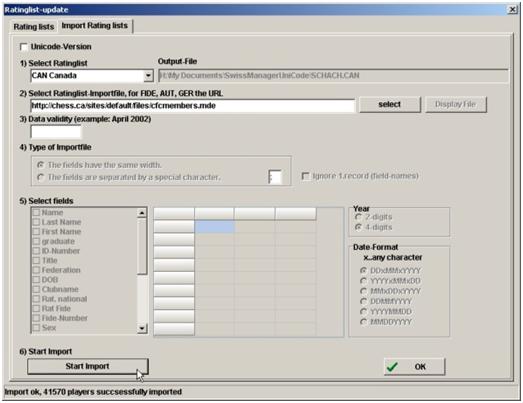

The StandingsĪ Dataframe is relatively simple to create. 4 - so let’s make sure we can do numbers 1–3 first. It definitely seems as if the hardest ingredient to prepare will be No.
#Swiss manager chess update
A container with the results of matches, which we can use to update the current standings.A Dataframe containing the current standings - so that we can see who should be paired with whom.One of the ways that I like to solve problems is to think of what I need to develop a solution - what are the pieces I need to put together? Here’s a shortlist I came up with: That’s it! I’ve come up with a new recipe! (FFXV reference, move along) Ingredients Thus, to create our Tournament Manager app, we’re first going to need to come with an algorithm that does the above. For example, a 32-player Swiss tournament would only need 5 rounds to conclude rather than a 31-Round-Robin tournament - much better! In this way, the tournament aims to pair similarly ranked players until a winner is determined, and this process generally takes much fewer rounds than a round-robin tournament to resolve. Participants cannot play the same opponent twice.Participants are paired with opponents who have similar scores.Swiss-style tournaments generally have two rules: Swiss-style tournaments were developed to counteract this problem. But the same tournament style for 32 players would require 31 rounds - a logistical nightmare at beast. For example, 4-player round-robin tournament requires 3 rounds to be played.

The problem with a Round-Robin tournament is that it doesn’t scale very well to large numbers of participants. In general, tournaments aim to determine the best player/team (I’ll just use player from now on) in a competition obviously, the best way to go about this is to make each participant play each other, and the player with the highest score at the end of it all wins - this is known as a “ Round-Robin” style tournament.
#Swiss manager chess code
Right, so what are we trying to do anyway? We’re trying to code a Tournament Manager, which is useful for things like e-sports, trading card games, and anything else that’s vaguely competitive.


 0 kommentar(er)
0 kommentar(er)
